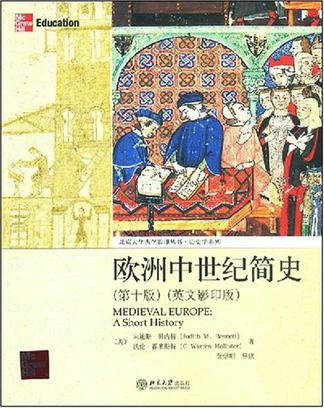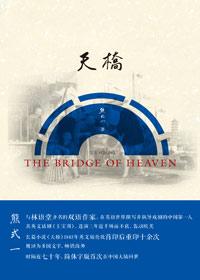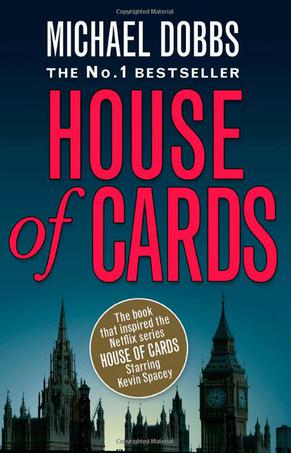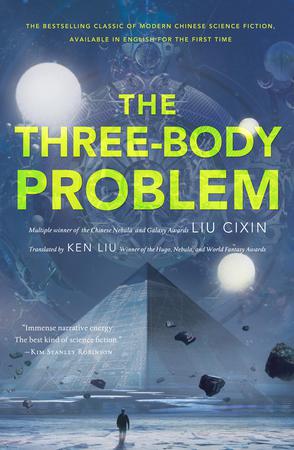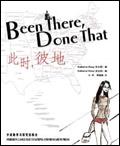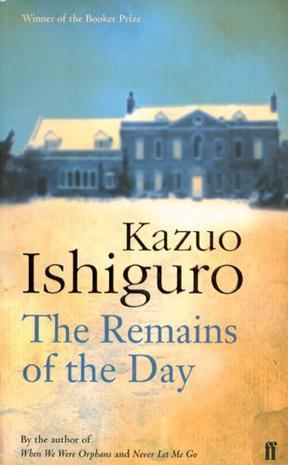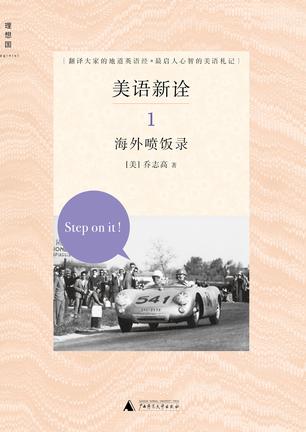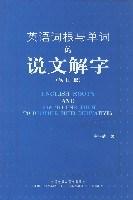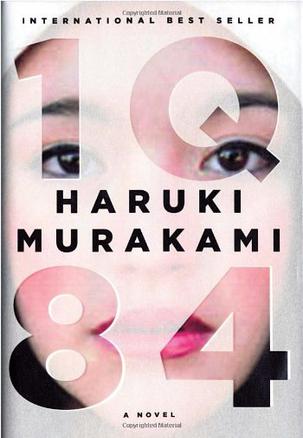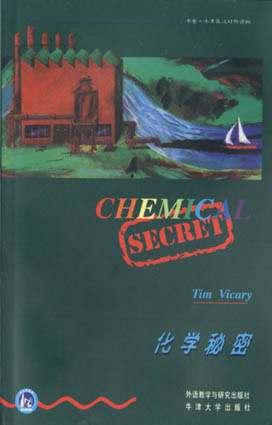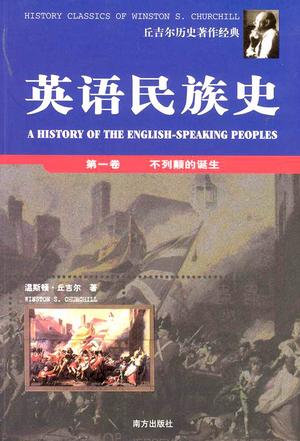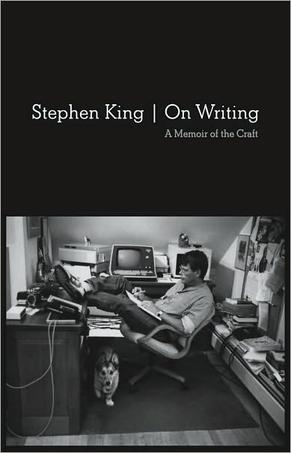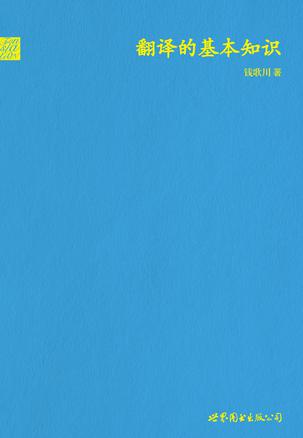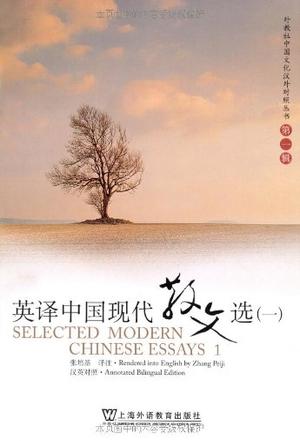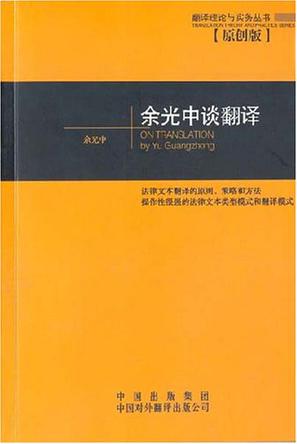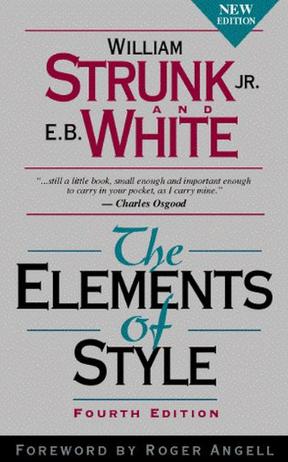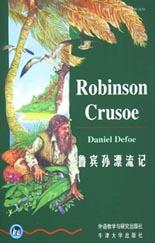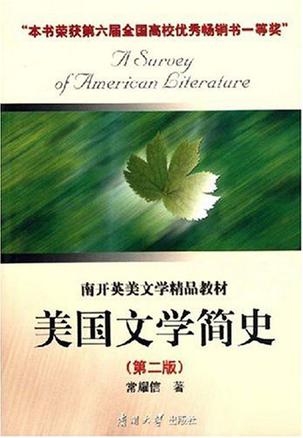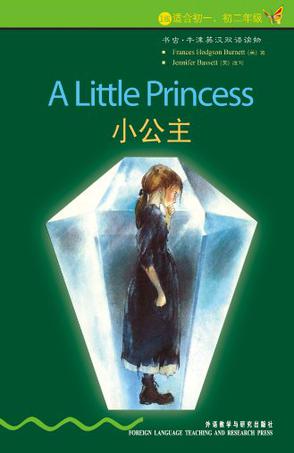欢迎来到相识电子书!
标签:英语
-
欧洲中世纪简史
欧洲中世纪,过去曾经被我们认为是在愚昧的教士主宰之下的“黑暗时代”,“半梦半醒的一千年”。20世纪的史学家们已经终结了这一神话。在当代英语世界,《欧洲中世纪简史》是一本准确、权威的中世纪史入门佳作。它以清晰的线索、全面的描述让读者看到了中世纪的光明与活力。 作者将中世纪史析为早期(500—1000)、中期(1000—1300)、晚期(1300~1500)三阶段。在第一阶段,罗马皈依基督教之后,古典文化与基督教文化、日耳曼文化相融合,促成了欧洲的诞生。查理大帝一度雄霸西欧。第二阶级是中世纪的盛期,经济起飞,城市兴起,政治文教发达,三百年问精彩叠现。第三阶段两百年,教廷分裂,英法百年征战,哀鸿遍野,疫病流行,一片颓败之势。而瘟疫过后,欧洲文化重又焕发生机,宗教革新,文艺复兴,科学革命,“理性时代”的近代欧洲呼之欲出。 本书由霍莱斯特教授始作于20世纪60年代,此后不断修订,内容与时俱进。霍莱斯特逝后,擅长妇女史的贝内特教授继续增补此书。第十版保持了原作结构上的平衡,叙述简明扼要,而且在社会文化史方面,内容更为丰富。 -
天桥
《天桥(中文版)》是熊式一先生用英文创作的长篇小说,于1943年在伦敦出版。这部“以历史为背景的社会讽刺小说”,以李氏家族的兴衰,特别是主人公李大同的成长经历为主线,穿插叙述了戊戌变法、黄花岗起义、武昌起义、清帝逊位、民国肇始等一系列重大历史事件,展现了清季民初的时代鼎革和社会变迁。 -
House of Cards
THE BESTSELLING POLITICAL THRILLER THAT INTRODUCED THE SCHEMING FRANCIS URQUHART - THE MOST MEMORABLE POLITICIAN OF THE LAST DECADE Francis Urquhart is Chief Whip. He has his hands on every secret in politics - and is willing to betray them all to become Prime Minister. Mattie Storin is a tenacious young political correspondent. She faces the biggest challenge of her life when she stumbles upon a scandalous web of intrigue and financial corruption at the very highest levels. She is determined to reveal the truth, but she must risk everything to do so. . . -
The Three-Body Problem
Three-Body Problem is the first chance for English-speaking readers to experience this multiple award winning phenomenon from China’s most beloved science fiction author, Liu Cixin. Set against the backdrop of China’s Cultural Revolution, a secret military project sends signals into space to establish contact with aliens. An alien civilization on the brink of destruction captures the signal and plans to invade Earth. Meanwhile, on Earth, different camps start forming, planning to either welcome the superior beings and help them take over a world seen as corrupt, or to fight against the invasion. The result is a science fiction masterpiece of enormous scope and vision. ___________________________________________________________________________Excerpt. © Reprinted by permission. All rights reserved. 1 The Madness Years China, 1967 The Red Union had been attacking the headquarters of the April Twenty-eighth Brigade for two days. Their red flags fluttered restlessly around the brigade building like flames yearning for firewood. The Red Union commander was anxious, though not because of the defenders he faced. The more than two hundred Red Guards of the April Twenty-eighth Brigade were mere greenhorns compared with the veteran Red Guards of the Red Union, which was formed at the start of the Great Proletarian Cultural Revolution in early 1966. The Red Union had been tempered by the tumultuous experience of revolutionary tours around the country and seeing Chairman Mao in the great rallies in Tiananmen Square. But the commander was afraid of the dozen or so iron stoves inside the building, filled with explosives and connected to each other by electric detonators. He couldn’t see them, but he could feel their presence like iron sensing the pull of a nearby magnet. If a defender flipped the switch, revolutionaries and counter-revolutionaries alike would all die in one giant ball of fire. And the young Red Guards of the April Twenty-eighth Brigade were indeed capable of such madness. Compared with the weathered men and women of the first generation of Red Guards, the new rebels were a pack of wolves on hot coals, crazier than crazy. The slender figure of a beautiful young girl emerged at the top of the building, waving the giant red banner of the April Twenty-eighth Brigade. Her appearance was greeted immediately by a cacophony of gunshots. The weapons attacking her were a diverse mix: antiques such as American carbines, Czech-style machine guns, Japanese Type-38 rifles; newer weapons such as standard-issue People’s Liberation Army rifles and submachine guns, stolen from the PLA after the publication of the “August Editorial”1; and even a few Chinese dadao swords and spears. Together, they formed a condensed version of modern history. Numerous members of the April Twenty-eighth Brigade had engaged in similar displays before. They’d stand on top of the building, wave a flag, shout slogans through megaphones, and scatter flyers at the attackers below. Every time, the courageous man or woman had been able to retreat safely from the hailstorm of bullets and earn glory for their valor. The new girl clearly thought she’d be just as lucky. She waved the battle banner as though brandishing her burning youth, trusting that the enemy would be burnt to ashes in the revolutionary flames, imagining that an ideal world would be born tomorrow from the ardor and zeal coursing through her blood.… She was intoxicated by her brilliant, crimson dream until a bullet pierced her chest. Her fifteen-year-old body was so soft that the bullet hardly slowed down as it passed through it and whistled in the air behind her. The young Red Guard tumbled down along with her flag, her light form descending even more slowly than the piece of red fabric, like a little bird unwilling to leave the sky. The Red Union warriors shouted in joy. A few rushed to the foot of the building, tore away the battle banner of the April Twenty-eighth Brigade, and seized the slender, lifeless body. They raised their trophy overhead and flaunted it for a while before tossing it toward the top of the metal gate of the compound. Most of the gate’s metal bars, capped with sharp tips, had been pulled down at the beginning of the factional civil wars to be used as spears, but two still remained. As their sharp tips caught the girl, life seemed to return momentarily to her body. The Red Guards backed up some distance and began to use the impaled body for target practice. For her, the dense storm of bullets was now no different from a gentle rain, as she could no longer feel anything. From time to time, her vinelike arms jerked across her body softly, as though she were flicking off drops of rain. And then half of her young head was blown away, and only a single, beautiful eye remained to stare at the blue sky of 1967. There was no pain in that gaze, only solidified devotion and yearning. And yet, compared to some others, she was fortunate. At least she died in the throes of passionately sacrificing herself for an ideal. * * * Battles like this one raged across Beijing like a multitude of CPUs working in parallel, their combined output, the Cultural Revolution. A flood of madness drowned the city and seeped into every nook and cranny. At the edge of the city, on the exercise grounds of Tsinghua University, a mass “struggle session” attended by thousands had been going on for nearly two hours. This was a public rally intended to humiliate and break down the enemies of the revolution through verbal and physical abuse until they confessed to their crimes before the crowd. As the revolutionaries had splintered into numerous factions, opposing forces everywhere engaged in complex maneuvers and contests. Within the university, intense conflicts erupted between the Red Guards, the Cultural Revolution Working Group, the Workers’ Propaganda Team, and the Military Propaganda Team. And each faction divided into new rebel groups from time to time, each based on different backgrounds and agendas, leading to even more ruthless fighting. But for this mass struggle session, the victims were the reactionary bourgeois academic authorities. These were the enemies of every faction, and they had no choice but to endure cruel attacks from every side. Compared to other “Monsters and Demons,”2 reactionary academic authorities were special: During the earliest struggle sessions, they had been both arrogant and stubborn. That was also the stage in which they had died in the largest numbers. Over a period of forty days, in Beijing alone, more than seventeen hundred victims of struggle sessions were beaten to death. Many others picked an easier path to avoid the madness: Lao She, Wu Han, Jian Bozan, Fu Lei, Zhao Jiuzhang, Yi Qun, Wen Jie, Hai Mo, and other once-respected intellectuals had all chosen to end their lives.3 Those who survived that initial period gradually became numb as the ruthless struggle sessions continued. The protective mental shell helped them avoid total breakdown. They often seemed to be half asleep during the sessions and would only startle awake when someone screamed in their faces to make them mechanically recite their confessions, already repeated countless times. Then, some of them entered a third stage. The constant, unceasing struggle sessions injected vivid political images into their consciousness like mercury, until their minds, erected upon knowledge and rationality, collapsed under the assault. They began to really believe that they were guilty, to see how they had harmed the great cause of the revolution. They cried, and their repentance was far deeper and more sincere than that of those Monsters and Demons who were not intellectuals. For the Red Guards, heaping abuse upon victims in those two latter mental stages was utterly boring. Only those Monsters and Demons who were still in the initial stage could give their overstimulated brains the thrill they craved, like the red cape of the matador. But such desirable victims had grown scarce. In Tsinghua there was probably only one left. Because he was so rare, he was reserved for the very end of the struggle session. Ye Zhetai had survived the Cultural Revolution so far, but he remained in the first mental stage. He refused to repent, to kill himself, or to become numb. When this physics professor walked onto the stage in front of the crowd, his expression clearly said: Let the cross I bear be even heavier. The Red Guards did indeed have him carry a burden, but it wasn’t a cross. Other victims wore tall hats made from bamboo frames, but his was welded from thick steel bars. And the plaque he wore around his neck wasn’t wooden, like the others, but an iron door taken from a laboratory oven. His name was written on the door in striking black characters, and two red diagonals were drawn across them in a large X. Twice the number of Red Guards used for other victims escorted Ye onto the stage: two men and four women. The two young men strode with confidence and purpose, the very image of mature Bolshevik youths. They were both fourth-year students4 majoring in theoretical physics, and Ye was their professor. The women, really girls, were much younger, second-year students from the junior high school attached to the university.5 Dressed in military uniforms and equipped with bandoliers, they exuded youthful vigor and surrounded Ye Zhetai like four green flames. His appearance excited the crowd. The shouting of slogans, which had slackened a bit, now picked up with renewed force and drowned out everything else like a resurgent tide. After waiting patiently for the noise to subside, one of the male Red Guards turned to the victim. “Ye Zhetai, you are an expert in mechanics. You should see how strong the great unified force you’re resisting is. To remain so stubborn will lead only to your death! Today, we will continue the agenda from the last time. There’s no need to waste words. Answer the following question without your typical deceit: Between the years of 1962 and 1965, did you not decide on your own to add relativity to the intro physics course?” “Relativity is part of the fundamental theories of physics,” Ye answered. “How can a basic survey course not teach it?” “You lie!” a female Red Guard by his side shouted. “Einstein is a reactionary academic authority. He would serve any master who dangled money in front of him. He even went to the American Imperialists and helped them build the atom bomb! To develop a revolutionary science, we must overthrow the black banner of capitalism represented by the theory of relativity!” Ye remained silent. Enduring the pain brought by the heavy iron hat and the iron plaque hanging from his neck, he had no energy to answer questions that were not worth answering. Behind him, one of his students also frowned. The girl who had spoken was the most intelligent of the four female Red Guards, and she was clearly prepared, as she had been seen memorizing the struggle session script before coming onstage. But against someone like Ye Zhetai, a few slogans like that were insufficient. The Red Guards decided to bring out the new weapon they had prepared against their teacher. One of them waved to someone offstage. Ye’s wife, physics professor Shao Lin, stood up from the crowd’s front row. She walked onto the stage dressed in an ill-fitting green outfit, clearly intended to imitate the military uniform of the Red Guards. Those who knew her remembered that she had often taught class in an elegant qipao, and her current appearance felt forced and awkward. “Ye Zhetai!” She was clearly unused to such theater, and though she tried to make her voice louder, the effort magnified the tremors in it. “You didn’t think I would stand up and expose you, criticize you? Yes, in the past, I was fooled by you. You covered my eyes with your reactionary view of the world and science! But now I am awake and alert. With the help of the revolutionary youths, I want to stand on the side of the revolution, the side of the people!” She turned to face the crowd. “Comrades, revolutionary youths, revolutionary faculty and staff, we must clearly understand the reactionary nature of Einstein’s theory of relativity. This is most apparent in general relativity: Its static model of the universe negates the dynamic nature of matter. It is anti-dialectical! It treats the universe as limited, which is absolutely a form of reactionary idealism.…” As he listened to his wife’s lecture, Ye allowed himself a wry smile. Lin, I fooled you? Indeed, in my heart you’ve always been a mystery. One time, I praised your genius to your father—he’s lucky to have died early and escaped this catastrophe—and he shook his head, telling me that he did not think you would ever achieve much academically. What he said next turned out to be so important to the second half of my life: “Lin Lin is too smart. To work in fundamental theory, one must be stupid.” In later years, I began to understand his words more and more. Lin, you truly are too smart. Even a few years ago, you could feel the political winds shifting in academia and prepared yourself. For example, when you taught, you changed the names of many physical laws and constants: Ohm’s law you called resistance law, Maxwell’s equations you called electromagnetic equations, Planck’s constant you called the quantum constant.… You explained to your students that all scientific accomplishments resulted from the wisdom of the working masses, and those capitalist academic authorities only stole these fruits and put their names on them. But even so, you couldn’t be accepted by the revolutionary mainstream. Look at you now: You’re not allowed to wear the red armband of the “revolutionary faculty and staff”; you had to come up here empty-handed, without the status to carry a Little Red Book.… You can’t overcome the fault of being born to a prominent family in pre-revolutionary China and of having such famous scholars as parents. But you actually have more to confess about Einstein than I do. In the winter of 1922, Einstein visited Shanghai. Because your father spoke fluent German, he was asked to accompany Einstein on his tour. You told me many times that your father went into physics because of Einstein’s encouragement, and you chose physics because of your father’s influence. So, in a way, Einstein can be said to have indirectly been your teacher. And you once felt so proud and lucky to have such a connection. Later, I found out that your father had told you a white lie. He and Einstein had only one very brief conversation. The morning of November 13, 1922, he accompanied Einstein on a walk along Nanjing Road. Others who went on the walk included Yu Youren, president of Shanghai University, and Cao Gubing, general manager of the newspaper Ta Kung Pao. When they passed a maintenance site in the road bed, Einstein stopped next to a worker who was smashing stones and silently observed this boy with torn clothes and dirty face and hands. He asked your father how much the boy earned each day. After asking the boy, he told Einstein: five cents. This was the only time he spoke with the great scientist who changed the world. There was no discussion of physics, of relativity, only cold, harsh reality. According to your father, Einstein stood there for a long time after hearing the answer, watching the boy’s mechanical movements, not even bothering to smoke his pipe as the embers went out. After your father recounted this memory to me, he sighed and said, “In China, any idea that dared to take flight would only crash back to the ground. The gravity of reality is too strong.” “Lower your head!” one of the male Red Guards shouted. This may actually have been a gesture of mercy from his former student. All victims being struggled against were supposed to lower their heads. If Ye did lower his head, the tall, heavy iron hat would fall off, and if he kept his head lowered, there would be no reason to put it back on him. But Ye refused and held his head high, supporting the heavy weight with his thin neck. “Lower your head, you stubborn reactionary!” One of the girl Red Guards took off her belt and swung it at Ye. The copper belt buckle struck his forehead and left a clear impression that was quickly blurred by oozing blood. He swayed unsteadily for a few moments, then stood straight and firm again. One of the male Red Guards said, “When you taught quantum mechanics, you also mixed in many reactionary ideas.” Then he nodded at Shao Lin, indicating that she should continue. Shao was happy to oblige. She had to keep on talking, otherwise her fragile mind, already hanging on only by a thin thread, would collapse completely. “Ye Zhetai, you cannot deny this charge! You have often lectured students on the reactionary Copenhagen interpretation of quantum mechanics.” “It is, after all, the explanation recognized to be most in line with experimental results.” His tone, so calm and collected, surprised and frightened Shao Lin. “This explanation posits that external observation leads to the collapse of the quantum wave function. This is another expression of reactionary idealism, and it’s indeed the most brazen expression.” “Should philosophy guide experiments, or should experiments guide philosophy?” Ye’s sudden counterattack shocked those leading the struggle session. For a moment they did not know what to do. “Of course it should be the correct philosophy of Marxism that guides scientific experiments!” one of the male Red Guards finally said. “Then that’s equivalent to saying that the correct philosophy falls out of the sky. This is against the idea that the truth emerges from experience. It’s counter to the principles of how Marxism seeks to understand nature.” Shao Lin and the two college student Red Guards had no answer for this. Unlike the Red Guards who were still in junior high school, they couldn’t completely ignore logic. But the four junior high girls had their own revolutionary methods that they believed were invincible. The girl who had hit Ye before took out her belt and whipped Ye again. The other three girls also took off their belts to strike at Ye. With their companion displaying such revolutionary fervor, they had to display even more, or at least the same amount. The two male Red Guards didn’t interfere. If they tried to intervene now, they would be suspected of being insufficiently revolutionary. “You also taught the big bang theory. This is the most reactionary of all scientific theories.” One of the male Red Guards spoke up, trying to change the subject. “Maybe in the future this theory will be disproven. But two great cosmological discoveries of this century—Hubble’s law, and observation of the cosmic microwave background–show that the big bang theory is currently the most plausible explanation for the origin of the universe.” “Lies!” Shao Lin shouted. Then she began a long lecture about the big bang theory, remembering to splice in insightful critiques of the theory’s extremely reactionary nature. But the freshness of the theory attracted the most intelligent of the four girls, who couldn’t help but ask, “Time began with the singularity? So what was there before the singularity?” “Nothing,” Ye said, the way he would answer a question from any curious young person. He turned to look at the girl kindly. With his injuries and the tall iron hat, the motion was very difficult. “No … nothing? That’s reactionary! Completely reactionary!” the frightened girl shouted. She turned to Shao Lin, who gladly came to her aid. “The theory leaves open a place to be filled by God.” Shao nodded at the girl. The young Red Guard, confused by these new thoughts, finally found her footing. She raised her hand, still holding the belt, and pointed at Ye. “You: you’re trying to say that God exists?” “I don’t know.” “What?” “I’m saying I don’t know. If by ‘God’ you mean some kind of superconsciousness outside the universe, I don’t know if it exists or not. Science has given no evidence either way.” Actually, in this nightmarish moment, Ye was leaning toward believing that God did not exist. This extremely reactionary statement caused a commotion in the crowd. Led by one of the Red Guards on stage, another tide of slogan-shouting exploded. “Down with reactionary academic authority Ye Zhetai!” “Down with all reactionary academic authorities!” “Down with all reactionary doctrines!” Once the slogans died down, the girl shouted, “God does not exist. All religions are tools concocted by the ruling class to paralyze the spirit of the people!” “That is a very one-sided view,” Ye said calmly. The young Red Guard, embarrassed and angry, reached the conclusion that, against this dangerous enemy, all talk was useless. She picked up her belt and rushed at Ye, and her three companions followed. Ye was tall, and the four fourteen-year-olds had to swing their belts upward to reach his head, still held high. After a few strikes, the tall iron hat, which had protected him a little, fell off. The continuing barrage of strikes by the metal buckles finally made him fall down. The young Red Guards, encouraged by their success, became even more devoted to this glorious struggle. They were fighting for faith, for ideals. They were intoxicated by the bright light cast on them by history, proud of their own bravery.… Ye’s two students had finally had enough. “The chairman instructed us to ‘rely on eloquence rather than violence’!” They rushed over and pulled the four semicrazed girls off Ye. But it was already too late. The physicist lay quietly on the ground, his eyes still open as blood oozed from his head. The frenzied crowd sank into silence. The only thing that moved was a thin stream of blood. Like a red snake, it slowly meandered across the stage, reached the edge, and dripped onto a chest below. The rhythmic sound made by the blood drops was like the steps of someone walking away. A cackling laugh broke the silence. The sound came from Shao Lin, whose mind had finally broken. The laughter frightened the attendees, who began to leave the struggle session, first in trickles, and then in a flood. The exercise grounds soon emptied, leaving only one young woman below the stage. She was Ye Wenjie, Ye Zhetai’s daughter. As the four girls were taking her father’s life, she had tried to rush onto the stage. But two old university janitors held her down and whispered into her ear that she would lose her own life if she went. The mass struggle session had turned into a scene of madness, and her appearance would only incite more violence. She had screamed and screamed, but she had been drowned out by the frenzied waves of slogans and cheers. When it was finally quiet again, she was no longer capable of making any sound. She stared at her father’s lifeless body, and the thoughts she could not voice dissolved into her blood, where they would stay with her for the rest of her life. After the crowd dispersed, she remained like a stone statue, her body and limbs in the positions they were in when the two old janitors had held her back. After a long time, she finally let her arms down, walked slowly onto the stage, sat next to her father’s body, and held one of his already-cold hands, her eyes staring emptily into the distance. When they finally came to carry away the body, she took something from her pocket and put it into her father’s hand: his pipe. Wenjie quietly left the exercise grounds, empty save for the trash left by the crowd, and headed home. When she reached the foot of the faculty housing apartment building, she heard peals of crazy laughter coming out of the second-floor window of her home. That was the woman she had once called mother. Wenjie turned around, not caring where her feet would carry her. Finally, she found herself at the door of Professor Ruan Wen. Throughout the four years of Wenjie’s college life, Professor Ruan had been her advisor and her closest friend. During the two years after that, when Wenjie had been a graduate student in the Astrophysics Department, and through the subsequent chaos of the Cultural Revolution, Professor Ruan remained her closest confidante, other than her father. Ruan had studied at Cambridge University, and her home had once fascinated Wenjie: refined books, paintings, and records brought back from Europe; a piano; a set of European-style pipes arranged on a delicate wooden stand, some made from Mediterranean briar, some from Turkish meerschaum. Each of them seemed suffused with the wisdom of the man who had once held the bowl in his hand or clamped the stem between his teeth, deep in thought, though Ruan had never mentioned the man’s name. The pipe that had belonged to Wenjie’s father had in fact been a gift from Ruan. This elegant, warm home had once been a safe harbor for Wenjie when she needed to escape the storms of the larger world, but that was before Ruan’s home had been searched and her possessions seized by the Red Guards. Like Wenjie’s father, Ruan had suffered greatly during the Cultural Revolution. During her struggle sessions, the Red Guards had hung a pair of high heels around her neck and streaked her face with lipstick to show how she had lived the corrupt lifestyle of a capitalist. Wenjie pushed open the door to Ruan’s home, and she saw that the chaos left by the Red Guards had been cleaned up: The torn oil paintings had been glued back together and rehung on the walls; the toppled piano had been set upright and wiped clean, though it was broken and could no longer be played; the few books left behind had been put back neatly on the shelf.… Ruan was sitting on the chair before her desk, her eyes closed. Wenjie stood next to Ruan and gently caressed her professor’s forehead, face, and hands—all cold. Wenjie had noticed the empty sleeping pill bottle on the desk as soon as she came in. She stood there for a while, silent. Then she turned and walked away. She could no longer feel grief. She was now like a Geiger counter that had been subjected to too much radiation, no longer capable of giving any reaction, noiselessly displaying a reading of zero. But as she was about to leave Ruan’s home, Wenjie turned around for a final look. She noticed that Professor Ruan had put on makeup. She was wearing a light coat of lipstick and a pair of high heels. Copyright © 2006 by (Liu Cixin) -
Been There, Done That
在我们眼里,美国高中生过的简直就是神仙般的生活:约会、跳舞、喝酒、上网、郊游等构成了他们的日常生活,就算是考试也就是排个Play、来个debate、交篇essay就万事大吉。考大学对他们来说更是小菜一碟,非常容易的一件事,考上了正常,考不上才是哑巴说话.铁树开花,百年难得遇一次。可事实到底是怎么样呢,特别是作为一名华裔少女,Katharine Wang又是如何在美利坚的国土上,在一群白皮肤、黄头发的美国人中学习和生活的呢? 18岁的Katharine Wang(王文思)以她自己的高中生活为蓝本.用地道而又时尚的美语向你讲述了她和她的几位好朋友——活泼的Sunny、爱学习的Erin、父母离异的Camden、家境优越的Shawn和后来加入他们的中国男孩Christopher——在Jones学校的四年高中生活:面试时的忐忑不安、竞选年级长成功后的喜悦、学校国际美食夜端出的“春卷”、准备SAT考试时的伏案攻读……其中有欢笑,有泪水,有得意,有尴尬,有面对感情时的不知所措,还有他们对生命的反思。Katharine Wang用简单而生动的语言把你带入一个华裔美国高中生的真实生活…… -
The Remains of the Day
An elderly butler is on a five-day motoring trip through the West Country in the 1950s. The climax of his journey is to be a reunion with his former housekeeper. This 1989 Booker Prize-winner attempts to capture a period in British history and draw a portrait of a man in old age. -
美语新诠:海外喷饭录
乔志高累积在美国数十年“听”美语的经验,将地道有趣的习语、俚语、谚语,以中国化的观点和智慧加以诠释。美语中涌现的新词语、新用法,它们的来龙去脉、言外之意,凡微妙费解处,都用亦庄亦谐的文字、风趣耐读的故事,或追本溯源,娓娓道来;或三言两语,点拨到位。 为什么说不懂“双关语 ”(pun,“喷”),体会美式幽默永远只是隔靴搔痒?在美国这个大熔炉里,究竟是外国移民谋杀英文,还是移民后裔谋杀他们祖国的文字?为什么说话斩钉截铁说一是一,不是现代美语的美德?为什么美国人说话尽量避免大字眼,严肃场合也要故意掺杂俚语解嘲?选举政治中的log-rolling、barnstorming、platform,都是什么意思?在公司里,上司让你跟各个部门touch base,你该怎么办?为什么美国人害怕接到pink slip?人们老说的the name of the game,是指球赛吗?…… 乔志高优游中西文化六十余载,在他笔下,英文美语不再是呆板严肃的功课,而是轻松有趣、引人入胜的体验。书中汇集数千条地道美语,涉及华府政治、新闻传媒、竞技体育、大众生活的方方面面,汇成美国本土的南腔北调,最真实的美国之音,为美式英语权威集大成之作。 ▲梁实秋:乔志高关于英语的文章“不但精审,而且有趣”。 ▲夏志清:乔志高对美国语言了解如此之深,正因为他对美国的历史、政治、社会、文学、艺术、音乐以及各色人种及其方言,五六十年来日常注意而非常内行,远非一般专治一行的旅美博士、教授可望其项背的。 ▲陆谷孙:志高技高,汉英双语造诣俱深,好弄翻译之外,更是一位two-fisted writer……我深为志老十年如一日关注、追踪美语变化的执着和捕捉新词语的敏感所折服。” ▲白先勇:高先生诠释美语,深入浅出,每个词汇后面的故事,他都能说得兴趣盎然,读来引人入胜,不知不觉间,读者便学到了美语的巧妙,同时对美国社会文化也就有了更深一层的了解,因为高先生说的那些美语故事,其实反映了美国的社会史、文化史。高先生的英文能深能浅,雅俗之间,左右逢源,同时又有深藏不露的一面。 ▲董 桥:第一流的美语专家,功力那么深厚,每一个英文字经他掂量随手写些美语新诠一段段全是珠玑。 ▲金圣华:高先生丰盛的双语生涯,是一般人无法领悟的,他毕生在中英双语中穿插出入,折冲往返,他的学识,他的经验,他对促进中西文化交流的努力与贡献,岂是一言可以尽道? -
英语词根与单词的说文解字
《英语词根与单词的说文解字(修订版)》分三大部分,在介绍基本的词根理论的基础上,对常用的英语词根及其衍生词进行了讲解,并配以例句,每部分后还设计了练习。与初版相比,再版在以下两个方面有所提高和突破:一、在词根理论方面加强了科学性与系统性,增强了学术含量;二、在词根的选择和介绍、例句的内容以及练习的设计等方面更加注重其适用性和实用性。该书系国内少有的集理论性和实用性为一体的词根专著,适合高级程度的读者从事英语词汇学习与研究使用。 -
1Q84
“Murakami is like a magician who explains what he’s doing as he performs the trick and still makes you believe he has supernatural powers . . . But while anyone can tell a story that resembles a dream, it's the rare artist, like this one, who can make us feel that we are dreaming it ourselves.” — The New York Times Book Review The year is 1984 and the city is Tokyo. A young woman named Aomame follows a taxi driver’s enigmatic suggestion and begins to notice puzzling discrepancies in the world around her. She has entered, she realizes, a parallel existence, which she calls 1Q84 —“Q is for ‘question mark.’ A world that bears a question.” Meanwhile, an aspiring writer named Tengo takes on a suspect ghostwriting project. He becomes so wrapped up with the work and its unusual author that, soon, his previously placid life begins to come unraveled. As Aomame’s and Tengo’s narratives converge over the course of this single year, we learn of the profound and tangled connections that bind them ever closer: a beautiful, dyslexic teenage girl with a unique vision; a mysterious religious cult that instigated a shoot-out with the metropolitan police; a reclusive, wealthy dowager who runs a shelter for abused women; a hideously ugly private investigator; a mild-mannered yet ruthlessly efficient bodyguard; and a peculiarly insistent television-fee collector. A love story, a mystery, a fantasy, a novel of self-discovery, a dystopia to rival George Orwell’s— 1Q84 is Haruki Murakami’s most ambitious undertaking yet: an instant best seller in his native Japan, and a tremendous feat of imagination from one of our most revered contemporary writers. -
化学秘密
犯罪有两种形式,一种是有意识的,一种是无意识的。很少人刻意去犯罪,但大多数人对某些罪行视而不见。 然而,什么是犯罪?是应该以法律规定为依据还是以我们的内心感觉来判断?罪孽多种多样――贪婪、施暴、凶狠、仇恨。但是也有不太明显的罪恶――比如我们破坏这个世界:破坏天空、海洋、陆地。我们犯下的这些罪孽摧毁了未来和后代,但我们闭着双眼假装看不到这一切。 约翰・邓肯是一个生物学家。当他开始在化工厂工作时,他想他是在保护他的孩子们。他想为孩子们提供生活中最美好的东西,如一幢大房子、一艘船以及精彩的假期……然而他到底将给他们带来一个什么样的前途呢? 本书的作者蒂姆・维卡里从事英语教学数年,他在纽约生活工作。 -
英语民族史(全四册)
大英帝国雄踞19世纪,其属地与殖民地遍布全球,号称日不落帝国。而新生的美国则称霸20世纪,其政治、经济、文化、军事全方位地影响着20世纪历史进程。 自工业革命以来,两个英语国家相续雄霸世界达200余年,这绝不是偶然。温斯顿·丘吉尔以其如椽大笔,深刻而生动地为我们揭示了其中奥秘,这就是其历史名著《英语民族史》,再加上其回忆巨著《第一次世界大战回忆录》和《第二次世界大战回忆录》,几乎完整地描述了英语民族从蛮荒走到世界超强的历史轨迹。 地球上一个由讲英语的人口构成的宠大帝国--包括了不列颠、美国、加拿大和澳大利亚等西方最强国--历经了漫长曲折的历程而渐渐形成;它们的存在,深刻改变了世界的文明版图,强有力地左右着人类命运和历史的走向……在这部创作时间长达30年的伟大作品中,诺贝尔文学奖获得者、英国历史上最负盛名的人物丘吉尔以深邃的洞察力和史诗般的笔触,为读者描绘了一幅全景式的“帝国画卷”。 -
On Writing
Book Description "If you don't have the time to read, you don't have the time or the tools to write." In 1999, Stephen King began to write about his craft -- and his life. By midyear, a widely reported accident jeopardized the survival of both. And in his months of recovery, the link between writing and living became more crucial than ever. Rarely has a book on writing been so clear, so useful, and so revealing. On Writing begins with a mesmerizing account of King's childhood and his uncannily early focus on writing to tell a story. A series of vivid memories from adolescence, college, and the struggling years that led up to his first novel, Carrie, will afford readers a fresh and often very funny perspective on the formation of a writer. King next turns to the basic tools of his trade -- how to sharpen and multiply them through use, and how the writer must always have them close at hand. He takes the reader through crucial aspects of the writer's art and life, offering practical and inspiring advice on everything from plot and character development to work habits and rejection. Serialized in the New Yorker to vivid acclaim, On Writing culminates with a profoundly moving account of how King's overwhelming need to write spurred him toward recovery, and brought him back to his life. Brilliantly structured, friendly and inspiring, On Writing will empower -- and entertain -- everyone who reads it. Amazon.com Short and snappy as it is, Stephen King's On Writing really contains two books: a fondly sardonic autobiography and a tough-love lesson for aspiring novelists. The memoir is terrific stuff, a vivid description of how a writer grew out of a misbehaving kid. You're right there with the young author as he's tormented by poison ivy, gas-passing babysitters, uptight schoolmarms, and a laundry job nastier than Jack London's. It's a ripping yarn that casts a sharp light on his fiction. This was a child who dug Yvette Vickers from Attack of the Giant Leeches, not Sandra Dee. "I wanted monsters that ate whole cities, radioactive corpses that came out of the ocean and ate surfers, and girls in black bras who looked like trailer trash." But massive reading on all literary levels was a craving just as crucial, and soon King was the published author of "I Was a Teen-Age Graverobber." As a young adult raising a family in a trailer, King started a story inspired by his stint as a janitor cleaning a high-school girls locker room. He crumpled it up, but his writer wife retrieved it from the trash, and using her advice about the girl milieu and his own memories of two reviled teenage classmates who died young, he came up with Carrie. King gives us lots of revelations about his life and work. The kidnapper character in Misery, the mind-possessing monsters in The Tommyknockers, and the haunting of the blocked writer in The Shining symbolized his cocaine and booze addiction (overcome thanks to his wife's intervention, which he describes). "There's one novel, Cujo, that I barely remember writing." King also evokes his college days and his recovery from the van crash that nearly killed him, but the focus is always on what it all means to the craft. He gives you a whole writer's "tool kit": a reading list, writing assignments, a corrected story, and nuts-and-bolts advice on dollars and cents, plot and character, the basic building block of the paragraph, and literary models. He shows what you can learn from H.P. Lovecraft's arcane vocabulary, Hemingway's leanness, Grisham's authenticity, Richard Dooling's artful obscenity, Jonathan Kellerman's sentence fragments. He explains why Hart's War is a great story marred by a tin ear for dialogue, and how Elmore Leonard's Be Cool could be the antidote. King isn't just a writer, he's a true teacher. --Tim Appelo -
翻译的基本知识
本书讲解翻译的基本知识,既有高屋建瓴的理论论述,又有具体细微的实践指导,篇幅短小,深入浅出。自上世纪七十年代出版以来,在华语世界广为流传。 全书凡十八章,前半部纵论古今,介绍翻译的历史、语言学基础、规则、标准,有如知识小品,即使不通外文者,读起来也会兴致盎然;后半部教授翻译的具体步骤,俯拾引用当时欧美优秀作家文句及中国古典作品为例,由简及深,纠偏取正。附录部分列举大量误译实例进行评述改译,可供读者研习实战技巧。 读者可通由此书领略翻译的魅力,掌握翻译的基本知识,增进翻译的能力。 -
英译中国现代散文选1
《英译中国现代散文选(1)》精选中国现代散文名篇五十二篇,原著均出自五四以来一些名家之手。书中各篇均为汉英对照,并附详细注释及对原作者的一些必要的简介。对翻译过程中可能遇到的问题,如语言难点、翻译方法、历史背景等,编译者也作了一些分析讲解。 -
余光中谈翻译
书中选收余光中译论散文二十余篇,既谈翻译,也谈现代中文。作者认为:翻译须用纯净的中文。以散文形式写译论,熔知性和感性于一炉。见解精辟独到,文笔优美清丽,各篇论文本身就是好文章,足以示范。 -
The Elements of Style
这是一本薄薄的小书。首版于1918年由纽约一家出版社出版。作者William Strunk,康耐尔大学英语教授,E.B.怀特对此书加以了修正。此书短小精悍,容量巨大。涵盖了母语英语的人写作和用法上常出的错误,也清晰地解释了一些语法书中很难找到的语言现象。虽然是为说英语的学生所写,但对于任何需要进一步了解英文用法,进而学习书写英文的人,这本书必不可少的。 -
鲁宾孙漂流记(牛津英汉对照读物附磁带)/书虫
《鲁宾孙漂流记》(2级)中鲁宾孙索厌倦了英国家里恬静的生活。他决意成为一名海员,周游世界。他有很多激动人心的冒险经历,并于1695年登上了一艘从巴西开往非洲的船只。一天,来了一场可怕的风暴。轮船开始碎裂,克鲁索和他的朋友们立即为求生而与愤怒的大海抗争。所有的朋友都死了,唯有克鲁索活下来并到达了陆地。他发现自己在一个陌生、荒凉的国度,还活着,却孤独地在一个小岛上,没有食物,没有船只,无路可逃。随后的27年他将在那儿生活…… -
美国文学简史
《美国文学简史》第一版自1990年问世以来,作为教育部选定的高校文科教材及美国文学研究的重要参考书,在国内广泛使用,畅销不衰。全书精述17世纪早期至当今时代的美国文学发展史,评价主要作家及其代表作品,解析引领时代风气或主导作家创作的重要文学思潮和流派等。《美国文学简史》第二版吸收了近年来美国文学研究方面的新发现、新成果,增补了50余位当代作家作品的评介,论述了后现代主义特征在战后美国文坛特别是诗歌、小说、戏剧创作当中的表现; 此外,新版还注重收入近几十年来评论界对美国文学的新定义、新解释,增加了对少数民族作家的介绍,如美国黑人作家、印第安人作家、美国亚裔作家、美国拉丁裔作家等,上述群体的崛起使美国文学凸现多样化格局,增添了艺术背景的真实性。 -
曾达的囚徒
鲁道夫・拉森狄尔年轻富有,出生于一个历史悠久的英国家庭,可他却长着卢里塔尼亚王室所特有的深红色头发和长而笔挺的鼻子。这是多年前一个小小的家庭“意外”造成的结果。 鲁道夫决定去参加卢里塔尼亚新国王的加冕典礼。他到了曾达城,并在森林里漫步。第二天上午他却发现自己身陷意想不到的奇遇之中。他与新朋友萨普特上尉和弗里茨一起制定了营救曾达城堡中的囚徒的计划。很快他就与国王的死对头黑迈克和鲁帕特交上了手,而且爱上了国王的表妹,美丽的弗蕾维亚公主。 然后国王……然而,谁才是真正的卢里塔尼亚的国王呢? 安东尼・霍普1863年生于伦敦,1933年去世。他的真名是安东尼・霍普・霍金斯爵士。他成为专职作家之前是一位律师。他最著名的作品有《曾达的囚徒》和《鲁帕特》。 -
小公主
《书虫•牛津英汉双语读物:小公主(初中版)(外研社点读书)》内容简介:拉尔夫•克鲁和他的小女儿萨拉一起生活在印度。他是个有钱人,于是当他把萨拉带到伦敦明钦小姐的学校时,明钦小姐非常高兴。她喜欢父亲有钱的女孩子,这样对她的学校有好处。克鲁先生非常爱萨拉,给她买了许多漂亮的衣服、书还有洋娃娃。明钦小姐笑了,可她对她的姐姐说:“萨拉看起来就像个小公主一样,不像学生!” 克鲁先生回印度继续工作去了,而萨拉也开始了她新的学校生活。她是个善良、和气的女孩子,每个人都很喜欢她,很快地她就交了很多朋友。 可要知道,当你富有时,每个人都是你的朋友。萨拉11岁生日那天,从印度传来了可怕的消息。可怜的萨拉非常伤心,而她也很快地知道了谁才是她真正的朋友……
热门标签
下载排行榜
- 1 梦的解析:最佳译本
- 2 李鸿章全传
- 3 淡定的智慧
- 4 心理操控术
- 5 哈佛口才课
- 6 俗世奇人
- 7 日瓦戈医生
- 8 笑死你的逻辑学
- 9 历史老师没教过的历史
- 10 1分钟和陌生人成为朋友

